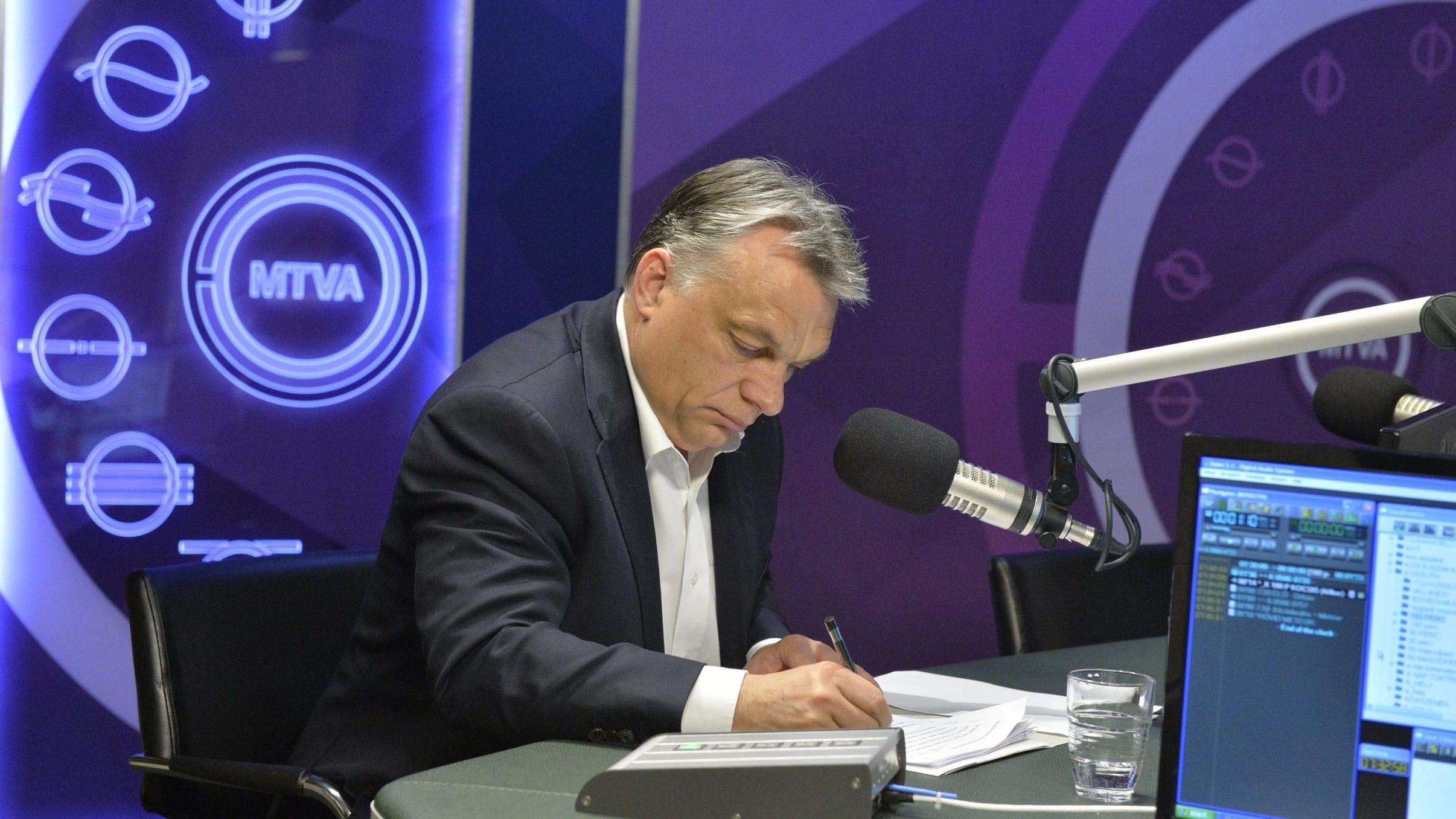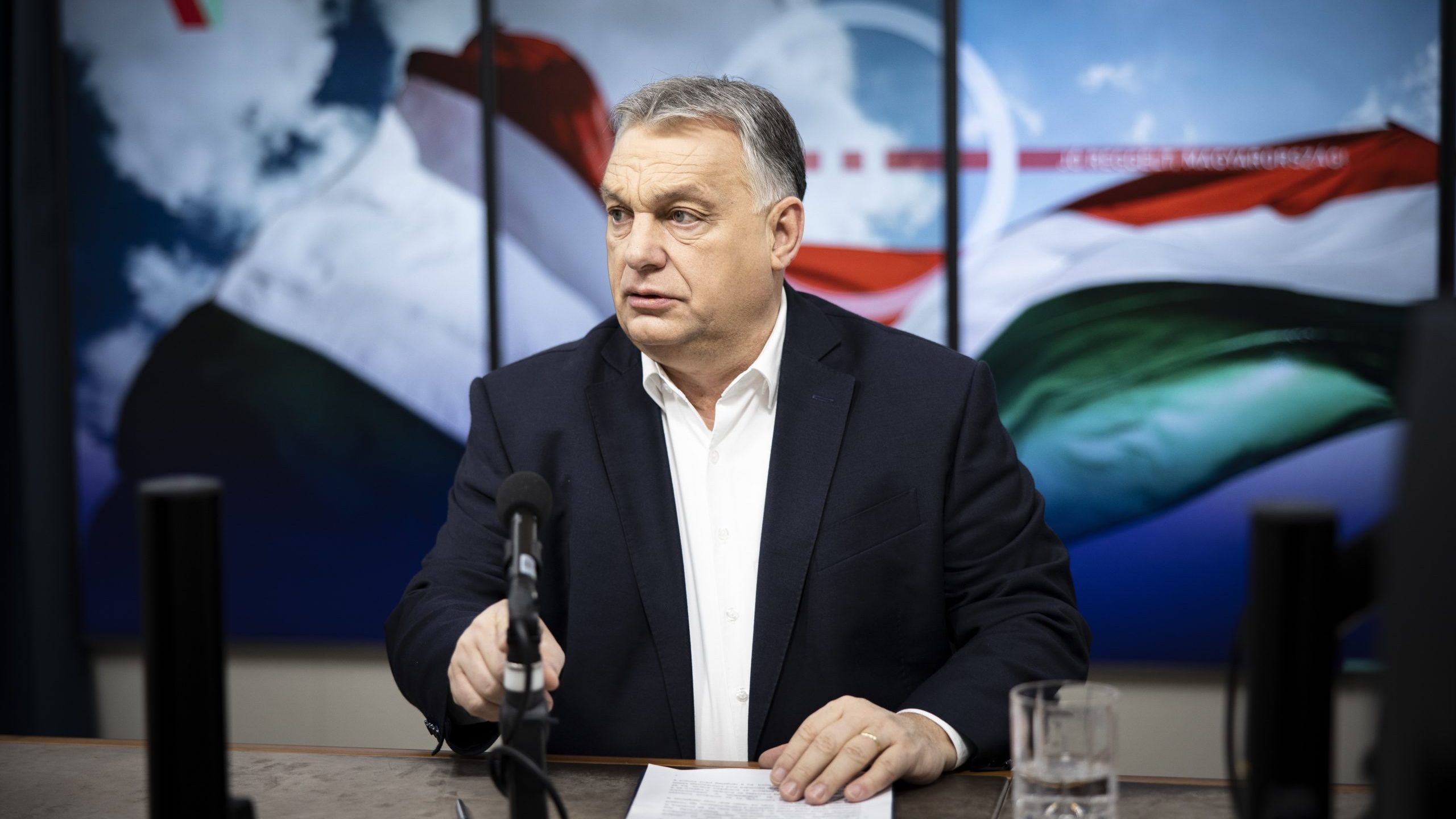
“I’m asking everyone to register, to enrol, to go and have themselves vaccinated, and if possible, to accept the vaccine they’re offered at the time,” he said.
The Prime Minister also said as many as 120,000 people completed the consultation questionnaire about the restarting of the country in just one day. He stressed that while naturally, the ultimate responsibility for the decisions on the restarting of life lies with the government, those decisions are best in which people in the largest possible numbers are involved.
“If we can break the third wave, we can start reopening the country,” Mr Orbán stated.
He also said from among all EU Member States, at present, Hungary has the largest number of vaccines. Regarding these, he repeated that by May in Hungary, 3.5 million more people will have been vaccinated than in other countries of comparable sizes because “we rely not only on vaccine supplies from within the EU which keep faltering, but we also have our own procurement sources”.
He highlighted that Minister of Foreign Affairs and Trade Péter Szijjártó said already in November that there would be “a race for vaccines” in the world, and he therefore suggested that Hungary should conduct negotiations worldwide in order to have enough despite the emerging shortage of vaccines. This is why they started negotiations with the Russians and the Chinese, he said, observing that he does not really care what others have to say about this because we must always be a step ahead of them.
He pointed out that “now, everyone, starting with the Germans” is working on ways to receive the Russian vaccine, and in his opinion, the time will come when they also start working on ways to find access to the Chinese vaccine, “of that we can be sure”.
In answer to the question about when we could start using the Chinese vaccine in Hungary, the Prime Minister said he was told by Chief Medical Officer Cecília Müller that “they’re making good progress”.
At the same time, on the radio programme, Mr Orbán highlighted that “we are at a very dangerous juncture,” the numbers of the coronavirus epidemic are rising steeply, and the trend is especially bad.
Outlining the latest novel coronavirus data, he said there are 3,093 new cases of infection, 110 persons have died – the average age being 75.6 years –, the number of those requiring hospitalisation is also rising continuously, standing at 4,024 at present, and 352 persons require assisted ventilation.
Whether the curve of vaccinations or that of the third wave will prove to be faster “will decide our fate”. If vaccinations are faster and more people ask to be vaccinated, “we will gain lives,” if, however, the curve of the third wave proves to be stronger, “we will lose lives,” the Prime Minister said.
He stressed at the same time that Hungarian health care has passed the test with flying colours in the past year, it is exceptionally robust, has saved an enormous number of people’s lives, and will cope with the load also during the third wave.
He added that there are substantial reserves; if, all of a sudden, we were compelled to provide hospital care for as many as 20,000 coronavirus patients, “we would be capable of that”.
Mr Orbán also said as many as 391,821 persons have already received at least the first dose of the vaccine, their number will soon rise to 441,000, and then “there will be a big leap” because over a period of 7 to 10 days some 650,000 people will be vaccinated. By the beginning of March, the number of those vaccinated will reach 1,225,000, while by the beginning of April 2,582,000. As a result, by Easter we will be able to vaccinate everyone who has registered so far, he said.
He further highlighted that upon vaccination, everyone is informed about the types of vaccines available at the time. If they accept the given vaccine, they will be vaccinated. However, if they choose not to accept the vaccine offered, “we tell them that they can rest assured that they will not be removed from the list of those to be vaccinated,” and they will be informed when their preferred vaccine becomes available.
In response to opposition criticisms, he said the Left are “a school of power, this political tradition stems from Lenin, through Rákosi and János Kádár […], when it comes to power, the Left no know mercy”.
“If the Left believe that it’s easier for them to gain power if the right-wing-national government’s vaccination programme fails, if the management of the epidemic fails, they will say so,” he said, adding that also at Parliament’s sitting on Monday, “hatred was sizzling” around him. At the same time, he said it is insulting to call those who complete the questionnaire mere clowns.
He observed that the Left had openly denied cooperation, but “now they’ve gone too far” as human lives are at stake.
Regarding the 30th anniversary of the establishment of the V4 cooperation, the Prime Minister said “if we remain united, we will all be better off, we will all be richer”.
He said Slovakia has a strategic role – as Hungary only borders Slovakia from among the V4 countries, and Slovakia connects together Central Europe’s Northern and Southern parts – while Poland, a country of 40 million, is “the keel economically”. Therefore, Poland and Hungary must be connected together, through Slovakia, with as many high-capacity energy pipelines and transport routes as possible. He described this as a fundamental Hungarian strategic economic interest.
As expected, the section of motorway extending to Kassa (Kosice) will be completed by the end of the year, but from there Poland is still a long way, and so the remaining section, too, will have to be built, if necessary, as a joint effort, he explained.
He also mentioned that the Member States of the V4 combined are Germany’s largest economic partners; this country group is “the European economy’s engine”.
For a long time, “we defended Europe” against external threats. Now, however, the situation has changed because Western Europe has let in cultures with non-Christian roots, and as a result, this kind of pressure is no longer being exerted through Central Europe, but from elsewhere because “we built the fence, and stopped migration,” he stated. However, “a smart Western European politician” is perfectly aware that a strong Central Europe is in Western Europe’s best strategic interest, he said in summary.

